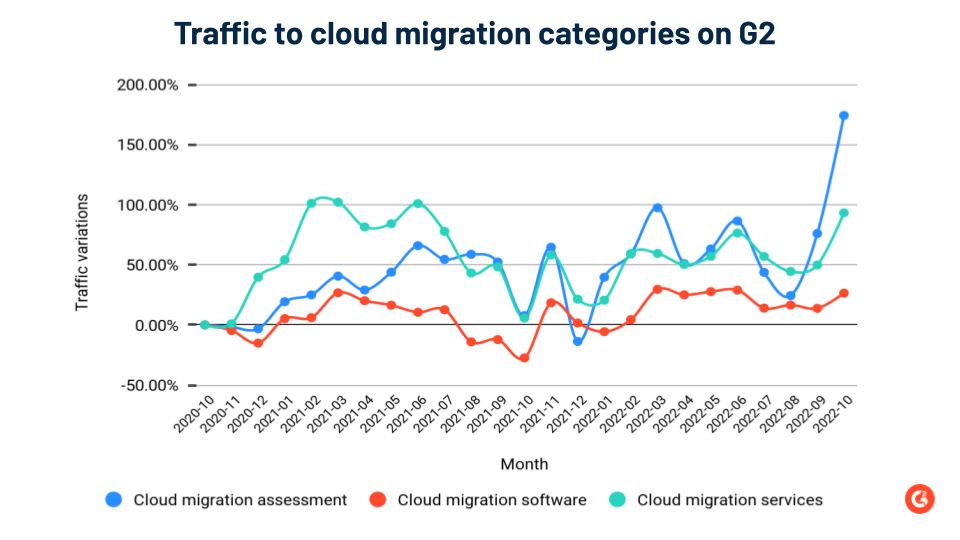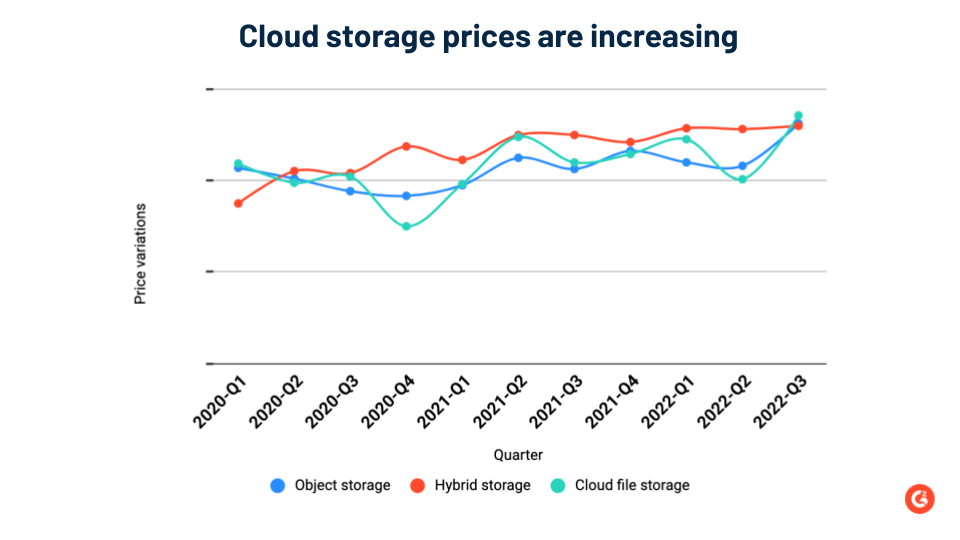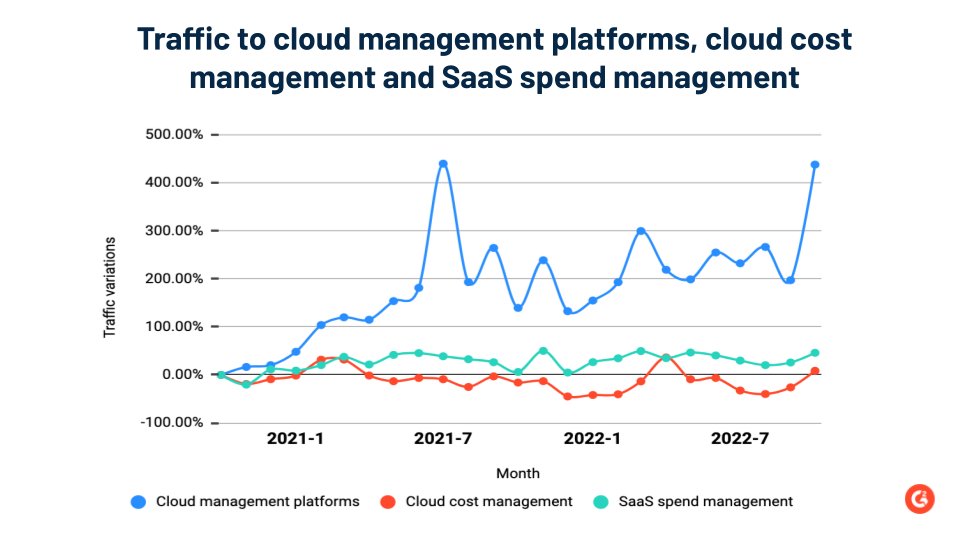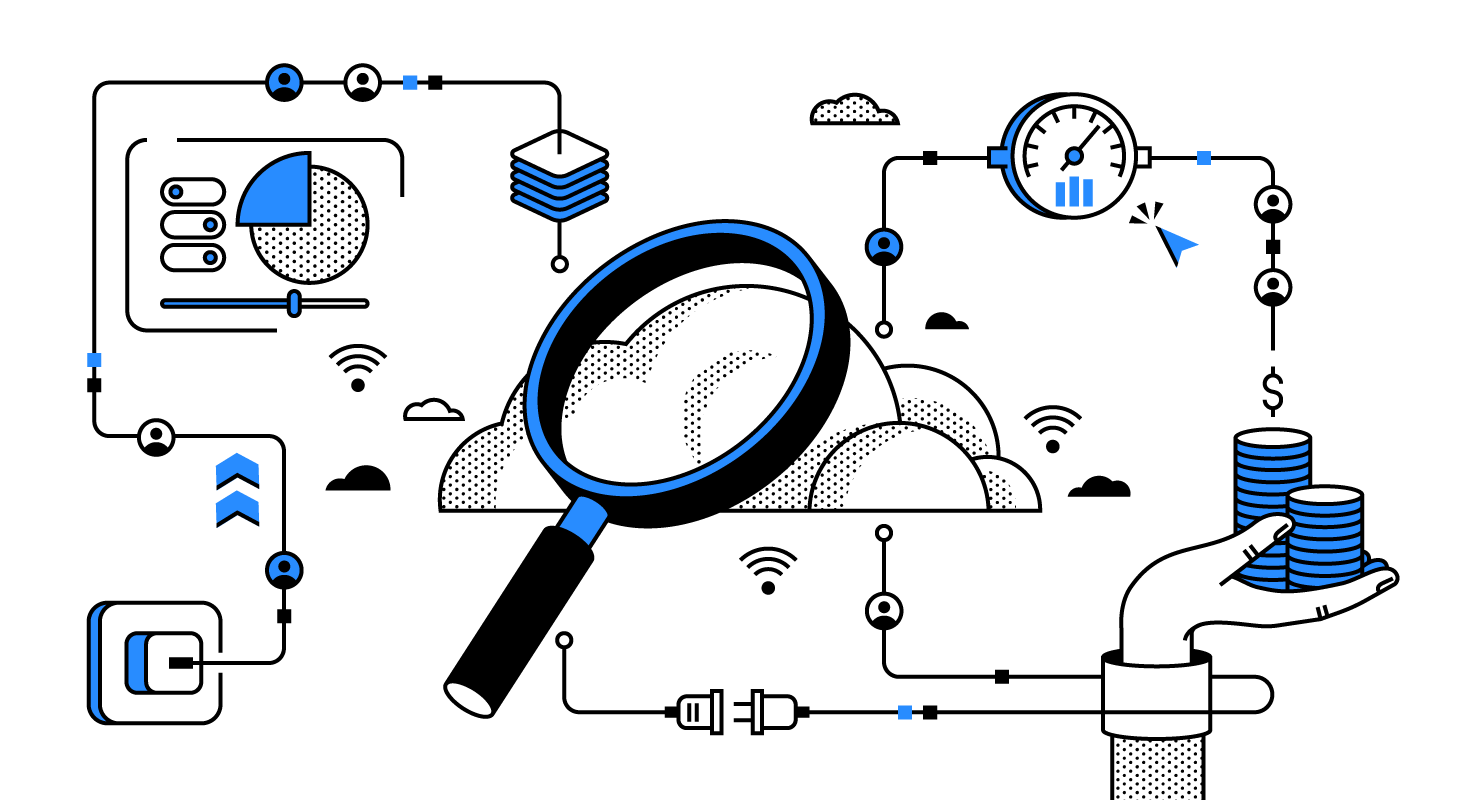This post is part of G2's 2023 digital trends series. Read more about G2’s perspective on digital transformation trends in an introduction from Emily Malis Greathouse, director, market research, and additional coverage on trends identified by G2’s analysts.
Cloud investments will continue to grow in 2023, but with increased scrutiny
Prediction
Companies will continue to invest in cloud-native technologies, but with more caution. Cloud management and cost management will take priority in 2023.Cloud is now a part of the core business strategy
Cloud computing has come a long way from being a differentiator to a core part of the business. A report by Grand View Research valued the cloud market to be at $398.92 billion in 2021 and expected it to grow at 15% CAGR up to 2030.
G2 predicts that companies will continue to invest in cloud-native technologies to access new innovations and become agile, but with more caution.
G2 data shows that traffic to Cloud Migration Assessment and Cloud Migration Services categories is growing, though at lower rates than in 2021. Companies tightened their purse strings in anticipation of an economic downturn in 2022 and became more prudent in their purchases, reflecting lower growth rates. The three leading cloud providers, Amazon, Microsoft, and Google, accounting for 63% of the cloud spend in Q3 of 2022, reported slower revenue growth in Q3 2022 compared to last year. Yet they expect the cloud market to grow and are expanding their infrastructure to support customers around the globe.

Cloud is more expensive than it initially appeared—control is crucial
Pay-as-you-go model, low switching costs, near-zero downtimes, and access to a huge array of innovation capabilities draw companies to cloud-native technologies. The last few years saw aggressive investments in cloud-native technologies and applications. Today more than 85% of companies have multicloud strategies, according to IBM.
Companies have signed up for a variety of cloud services from different vendors, each with their own billing methodologies. This opens doors to many challenges. There is very little visibility into all the cloud services and applications that an organization uses. It is tough to ensure all these heterogeneous solutions work together. And increased complexity of the IT landscape has increased the security risk.
If that was not enough, cloud vendors have actually started increasing their prices. Google increased the prices of some of its cloud services in 2022, with further increases planned for 2023. Data from reviews on G2 show that data storage costs are increasing. This is a problem because companies have terabytes of data in the cloud.

Cloud management platforms are vital in ensuring that the diverse set of solutions from different vendors works in harmony with each other. Companies have realized this as we have observed a huge growth of 438% in traffic to the G2’s Cloud Management Platforms category in the last two years.
But what is surprising is cost management seems to be still catching up. On G2, we are yet to see buyers give as much attention to Cloud Cost Management and SaaS Spend Management categories as they should.

We anticipate that cloud cost management and SaaS spend management will be at the top of the priority list of IT leaders to take control of their ever-growing cloud portfolio costs.
| Related: Harnessing the Power of Multiclouds through Cloud Management Platforms → |
As cloudflation gathers attention, the focus will be on optimization
Cloud is not immune to ongoing events around the world. With inflation, energy crisis, and chip shortage, we are going to hear more of the term “cloudflation”—an increase in prices of cloud services.
Organizations cannot afford to hold off investing in the cloud. So they will be very prudent in their choices. The spotlight will be on cloud cost management and cloud management. Some companies might seek the help of third parties to manage their cloud operations if that works out to be more cost effective.
Edited by Sinchana Mistry
Want to learn more about Cloud Migration Software? Explore Cloud Migration products.

Rachana Hasyagar
Rachana is a Research Manager at G2 focusing on cloud. She has 13 years of experience in market research and software. Rachana is passionate about cloud, AI, ERP, consumer goods, retail and supply chain, and has published many reports and articles in these areas. She holds an MBA from Indian Institute of Management, Bangalore, India, and a Bachelor of Engineering degree in electronics and communications. In her free time, Rachana loves traveling and exploring new places.
